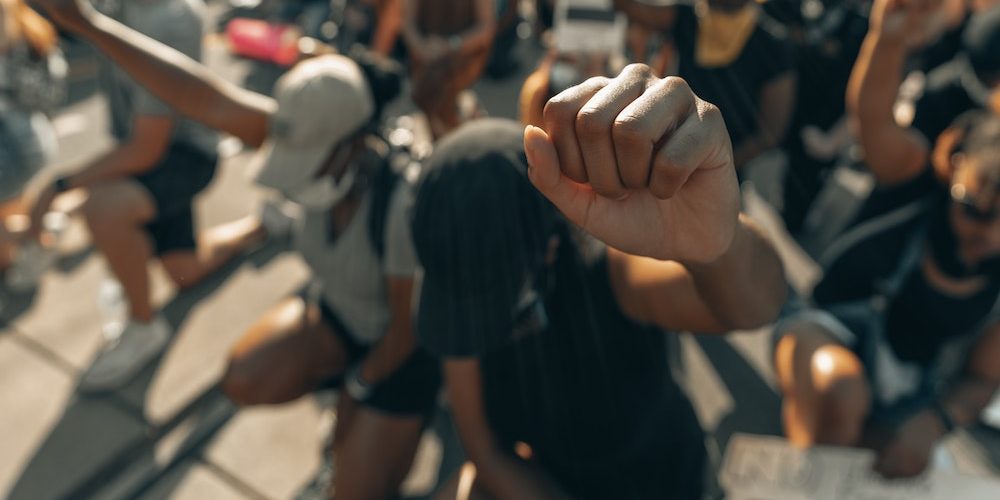Across the country, whether it be in-person or virtually, members of Canada’s African Caribbean and Black (ACB) Diaspora have been coming together. They’ve been brainstorming and working hard to achieve plans that have likely been months, if not years in the making—plans to facilitate Black History Month events that have meaningful and long lasting impacts—or at least a long enough impact to be remembered until next February.
For many ACB Canadians, February, or “Black History Month” as it is referred to here in Canada, is a month for Black joy, celebration, and storytelling intended to showcase the history of ACB Canadians. However, for many other ACB Canadians, Black History Month can feel like a pressure inducing, anxiety producing, performative exercise that misses the mark on equity and perpetuates the systemic oppression ACB Canadians continue to face both domestically and abroad.
I can’t pretend to speak on behalf of the entire ACB diaspora, nor would I ever attempt to. I can, however, share with readers my thoughts about Black History Month as an ACB activist engaged in efforts to bring Canadian Black history to schools across British Columbia.
For the past several years, I’ve volunteered with the B.C. Community Alliance (BCCA) as a member of the organization’s steering committee. Even with limited resources, we’ve successfully launched a Human Rights Tribunal complaint following a racist bomb threat at a Vancouver high school (ongoing), held the Vancouver Police Department to account through the Office of the Police Complaint Commissioner, assisted in terminating the Vancouver School Board’s School Liaison Officer Program, and gained support for the inclusion of Canadian Black history and anti-racism training for teachers from all 60 school districts across B.C.
I’m proud of the work the BCCA and other grassroots organizations have undertaken to improve the lives of ACB Canadians. However, I’m constantly reminded that meaningful strides towards our liberation have been fought for, and never given. I’m reminded that ACB Canadians are in many ways a people freed but never free; and that achieving true liberation of ACB Canadians will require more than a month, and also more than a movement.
Pre and post-confederation Canada both share histories many are ashamed of—genocide, white supremacy, slavery, and police brutality are just a few pieces that come to mind. Unfortunately, rather than teaching today’s youth about these historical and present day truths, provinces across Canada share historical narratives that glorify white colonizers, and erase the positive impacts of ACB Canadians from our history books.
In recent years, B.C.’s Ministry of Education has claimed that Canadian Black history is reflected in BC’s provincial curriculum with references to the transatlantic slave trade and the “underground railroad”. These types of statements are symptomatic of systemic racism, and serve as admissions of our education system’s ongoing role in creating and reinforcing negative narratives about ACB Canadians, which indirectly contribute to the ongoing cycles of systemic oppression faced by many ACB Canadians on a daily basis.
In BC and across Canada, ACB organizers have been advocating for the introduction of Canadian Black history for decades. These calls have continued to grow louder since the murder of George Floyd in 2020. The ACB struggle to include Canadian Black history in schools can serve as a microcosm of the struggle ACB Canadians have faced throughout Canadian history—the struggle for respect, acceptance, and permanency.
Although ACB Canadians have contributed greatly to forming present-day Canada, we have never benefited from the safety and comfort that comes from being a welcomed people to the country. From Africville in Halifax, to the Hogan’s Alley in Vancouver, our communities and historical monuments have been targeted, torn down, and paved over to be forgotten. Indeed, the discriminatory treatment many ACB settlers faced in B.C.’s early days continue in the present and contribute to the revolving door of ACB migration B.C. has witnessed for decades.
ACB Canadians exist within cycles of systemic oppression that continue to repeat themselves because most Canadians are unaware of Canada’s past and present mistreatment of ACB Canadians. This is exactly what ACB advocates across the country are trying to change by ensuring Canadian Black history is taught in the classroom.
Since 2020, I’ve led a series of dialogues between stakeholders from B.C.’s ACB community and Ministry of Education, where we’ve expressed many concerns of the ACB community in regards to education, and worked to find ways to ensure Canadian Black history is taught in classrooms across the province. This February, ACB stakeholders, including myself, will be meeting with B.C.’s Minister of Education, Jennifer Whiteside, with hopes of charting out the next steps of ensuring ACB Canadians are reflected and respected in B.C.’s provincial curriculum. Success in accomplishing this task could be one of the most significant moments for ACB Canadians in B.C.’s history, and turn the tides towards ACB liberation across the country.
It’s past time for governments across the country to stop telling marginalized and oppressed groups what they deserve, and to start listening to people at the grassroots who have been clear in expressing what they need. ACB Canadians have been relentless in saying we need to be present in the history books and provided with safe spaces to learn that are free of racism and hate.
Black History Month has existed in Canada since 1979. Since then, ACB Canadians have continued to face disproportionate rates of discrimination, police brutality, and over-incarceration. This February, I urge all Canadians to reflect on these facts and take action to become part of the change—show up to events, donate to local ACB organizations, support ACB artists and business, and email your education minister to let them know Canadian Black history matters.
Let us continue to celebrate Black History Month as a nation, but let us also continue to push government leaders to undo centuries of systemic oppression towards ACB Canadians and other marginalized groups by finding ways to permanently include ACB Canadians in our history books and communities across the country.




